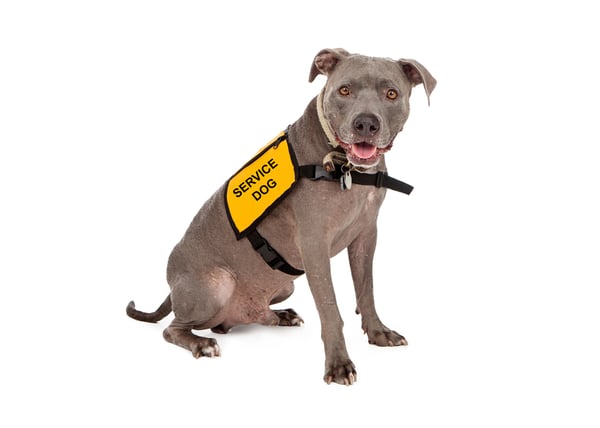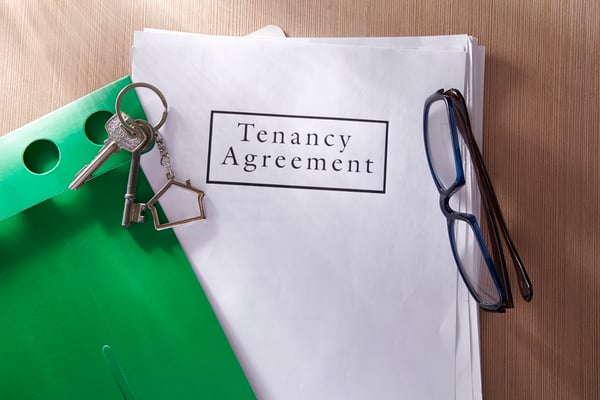In our past blogs, we've talked about all sorts of insider tips on everything from which real estate entity to choose to maintenance that can help protect your McKinney rental properties, reduce vacancy, and ultimately increase profit.
One topic that we feel doesn't get enough coverage is that of whether or not landlords and investors should allow pets into their investment properties.
The short answer from expert property managers is: yes! However, we feel that a more in-depth approach as to why this can be such a lucrative move for your rental properties is worth diving into.

The Perks of Pets
We would be remiss if we didn't cover both the benefits and drawbacks of considering the allowance of paws or scales into your McKinney rental properties. However, we feel that the pros of pets outweigh the cons when it comes to considering tenants.
What are some of the biggest perks of considering furry friends when it comes to your investments?
Additional Profits From Pet-Related Fees
Because pet-friendly housing is still challenging to find, pet owners are willing to pay the premiums needed to hold onto their pets and provide them with stable housing. For many millennials, in particular, pets are like another part of the family—and they'll go to great lengths to provide them with a reliable home.

Pet rent is now a standard for rental housing—whether you own a single-family property in McKinney or multi-family units. With rates from $10 to $50, monthly pet rent can be a serious income booster for investors looking to maximize their bottom line.
Couple that with slightly higher rent rates to protect your properties from damage, and you could be looking at an additional income boost when you rent to responsible pet owners.
If you choose to include additional fees, these need to be clearly defined in your lease.
Increasing Your Available Tenant Pool
As we mentioned, housing is still a challenge for many tenants with pets to find. When you consider that more than 70% of multi-family unit tenants had a pet in 2014, you're missing out on broadening the number of potential applicants interested in your rentals when you skip out on providing pet-friendly properties. This trend of pet ownership shows no signs of slowing down in 2020, either.
Once a tenant has found a home they love for themselves and their pets, they're less likely to uproot their lives and move to a new property. Provide a lovely home to renters and their companions, and you'll have long-term, excellent tenants. Decreasing vacancy and turnover is one key way to increase your overall profitability.
About Service Animals
An important note: You cannot charge disabled tenants pet-related fees when they have either a service animal or emotional support animals. While one of these animals (the ESA) requires documentation that you can ask for, both are covered under the Fair Housing Act (FHA).

You also cannot refuse to rent to disabled tenants on the grounds that they have a service animal or exclude their service animals from your properties. It could land you in serious hot water legally to try and maneuver this on your own. Get in touch with a trusted attorney or property manager in McKinney for more advice.
Are There Drawbacks to Pet Allowance?
At RentHub Property Management, we believe in an honest approach to our dealings with our landlords and investors: while allowing pets into your McKinney rental properties can be a boon to your bottom-line, it can also come with certain drawbacks when you fail to properly screen potential pets.
What are some drawbacks of allowing pets that you can avoid with thorough pet screening when you work with a property manager in McKinney?
Physical Damage
While it might seem like this is the worst outcome from hosting tenants with pets in your rental properties, it's only the beginning.
Damage to your rental property can come from both furry friends like dogs and cats in the form of claw marks and dug up carpet, but even scaled pets can bring unusual odors and damage from unsanitary cage conditions or burst tanks.
Protect against this pet drawback during your screening process by clearly defining which breeds and species are allowed in your lease, and check with past landlords during the pet's "background check" to get an idea of their behaviors in prior units.
Aggressive Tendencies
While you're less likely to experience dangerous, aggressive behavior from fish or a well-fed snake, this can be a significant concern when it comes to renting to tenants with dogs—especially enormous breeds. Dogs also happen to be the noisiest pet—besides certain species of birds—so prep your properties for pooches using your lease and screening process.
- Does the pet in question have any history of violence?
- What are their records like concerning noise complaints at past homes?
- Are they up to date on all required vaccinations?
Keep in mind that you can always tailor your lease to exclude certain breeds of pets before screening to avoid bias and make your expectations apparent.
The exception to this is service animals and emotional support animals. Fortunately, service animals are exceptionally trained for good behavior and minimal noise.
Pets Are a Plus! So Is Property Management
When you're an investor with multiple properties, developing a pet screening and leasing policy is essential to ensure even application across each property and prospective tenant. A property manager in McKinney can be a serious asset to your assets when it comes time to develop such policies.

Let the experts in McKinney be your guide! At RentHub Property Management, we know how to manage every element of the pet-screening process, and how to develop policies for your lease that protect your investments.
We also know that allowing pets and screening them is only one half of the picture: the human element needs screening too! In both cases, a clear set of screening policies is often your first line of defense against placing nightmare tenants into your rentals.
Screening your tenant prospects when it comes to your McKinney rental properties poses its own set of risks and challenges. This is why we offer our Tenant Screening Checklist to landlords and investors—for free! Let's work together to develop policies that protect your properties: download your free copy today!
Download The Checklist







